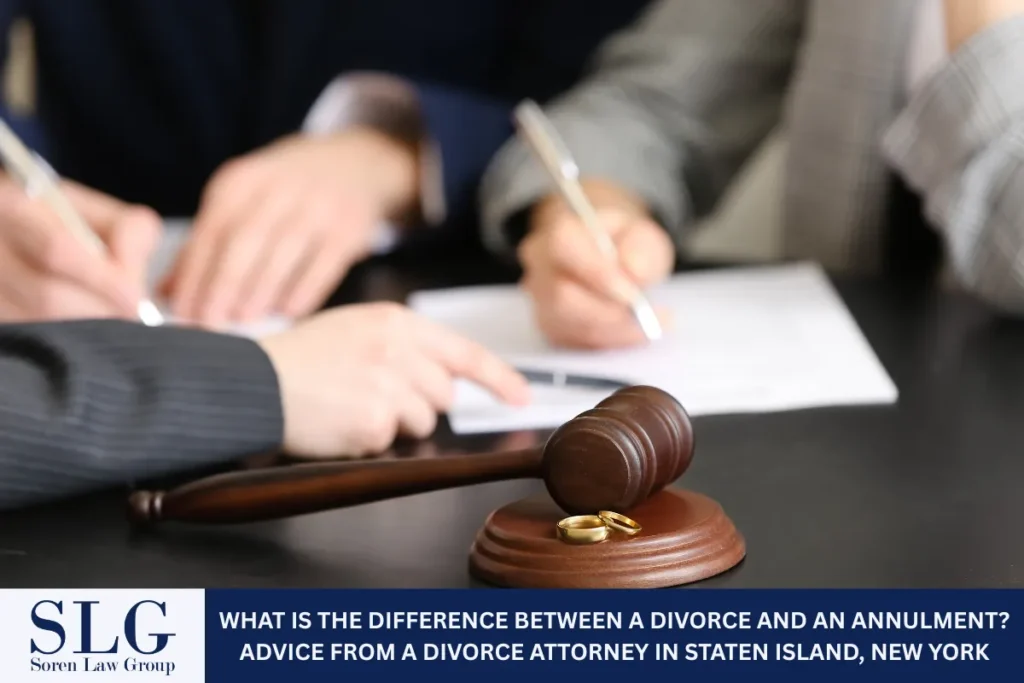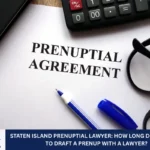The process of legally ending a marriage can be overwhelming, especially when the legal differences between divorce and annulment are not clearly understood. A divorce attorney can help explain how each option works under New York law, including what makes them different and which one applies to your situation.
Both divorce and annulment are legal means of dissolving a marriage, but they are distinct processes. Divorce is the legal end of a valid marriage. At the same time, annulment is a legal declaration that the marriage was never valid to begin with. Understanding how each works helps individuals make informed decisions before proceeding with either legal process. The distinctions go far beyond paperwork—they affect property rights, spousal support, and even how future relationships are viewed by law.
Understanding the Basics: Divorce vs. Annulment
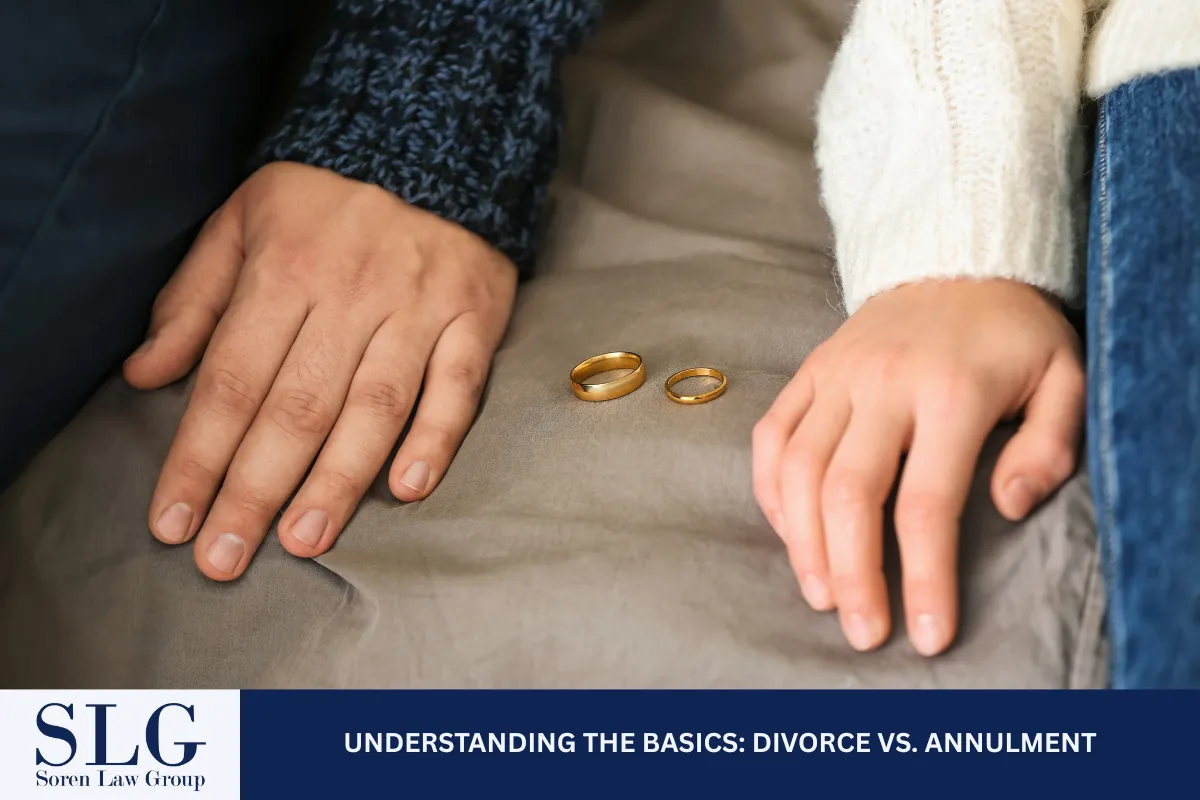
Divorce and annulment may seem like two ways to reach the same result—ending a marriage—but the legal meaning of each is very different. In New York, including Staten Island, divorce ends a legally recognized marriage. It acknowledges that the marriage was valid but is no longer working due to specific circumstances or mutual breakdown. Annulment, on the other hand, treats the marriage as if it never legally existed. This is not simply a quicker version of divorce; it requires valid legal grounds and is typically harder to obtain.
A divorce recognizes the legal history of the marriage. It results in the division of marital property, potential spousal support, and often custody arrangements if children are involved. A civil annulment, however, is based on the idea that the marriage should never have been recognized in the first place. The legal difference affects how property is distributed, whether support is ordered, and how records of the marriage are kept.
In both cases, the outcome is that both individuals are legally single. However, how they get there and what happens along the way is very different depending on whether the court grants a divorce or an annulment.
Grounds for Divorce in Staten Island, New York
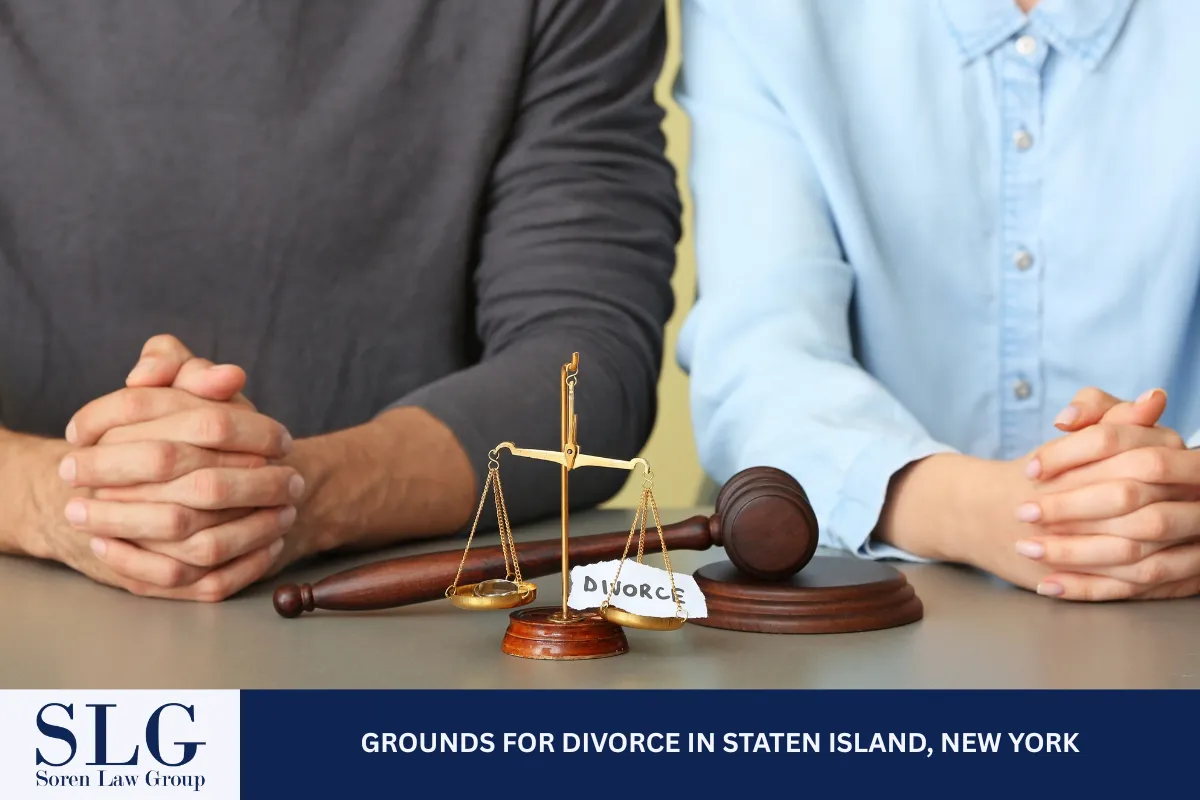
In New York, there are several legally accepted reasons for granting a divorce. These are known as the grounds for divorce, and they can be classified into two categories: no-fault and fault-based. Residents of Staten Island must meet at least one of these grounds to have a court approve their divorce.
No-Fault Divorce
The most commonly used reason is the no-fault ground. This means that the marriage has been “irretrievably broken” for at least six months. No one needs to prove that the other person did something wrong; it’s enough that the relationship cannot be repaired. No-fault divorce makes the process more straightforward and often less emotionally charged.
Fault-Based Divorce
In certain cases, one spouse may wish to file for divorce on grounds of fault. These include:
- Cruel treatment – One spouse claims the other caused physical or emotional harm, making it unsafe to continue the relationship.
- Adultery – A claim that one spouse had a sexual relationship outside the marriage.
- Abandonment – When one spouse leaves the other for a year or longer without consent.
- Imprisonment – If one spouse has been in prison for three or more years after the marriage took place.
Each of these fault-based claims must be proven in court with evidence. Fault-based divorces can result in longer proceedings but may influence decisions about spousal support or custody.
Grounds for Annulment in Staten Island, New York
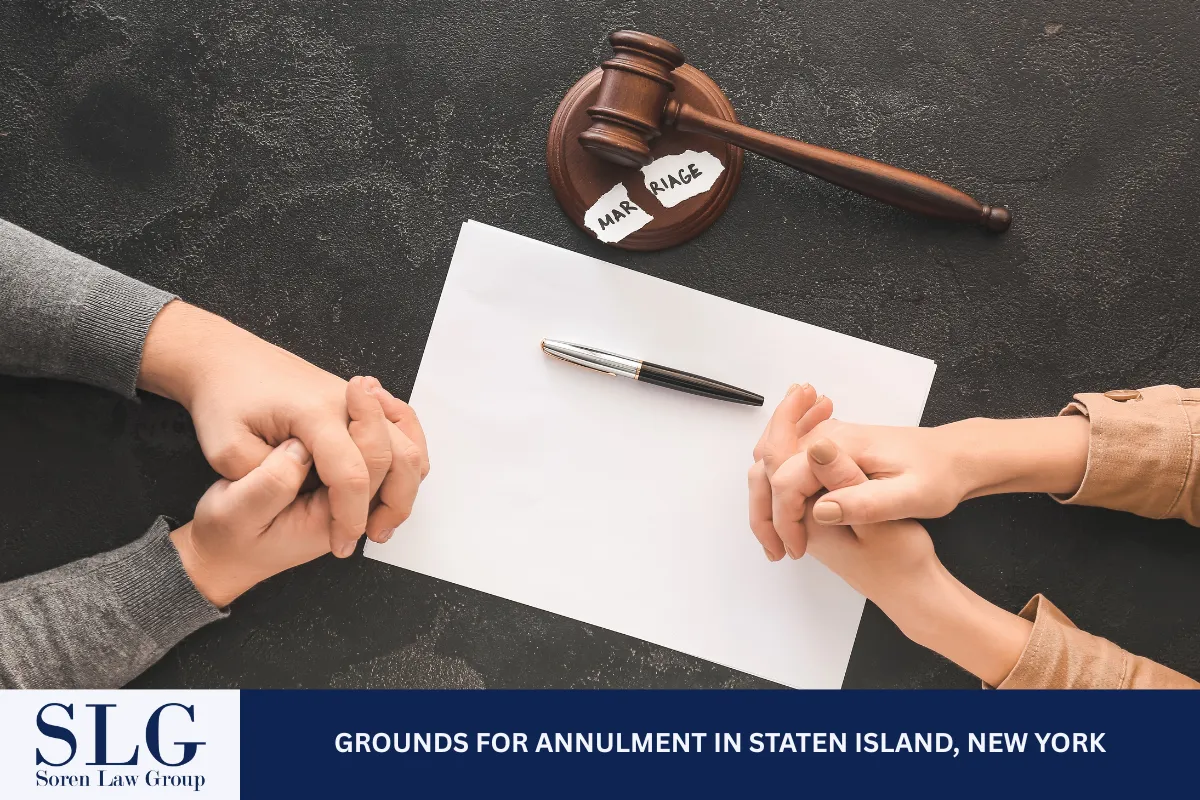
Annulment is only granted under specific legal grounds that show the marriage was never valid from the start. Unlike divorce, which ends a valid marriage, annulment erases the legal existence of the marriage based on factors present at the time of the wedding.
Fraud or Misrepresentation
If one person was tricked into the marriage through lies or intentional deceit, the court may grant an annulment. For example, if a person lied about their ability to have children or their immigration status, and that lie was critical to the other person’s decision to marry, this could be grounds for annulment.
Duress or Force
Marriages that happen under threats, pressure, or manipulation are not legally binding. A person who was forced to marry out of fear or under extreme pressure can request an annulment.
Mental Incapacity
A marriage can be annulled if one or both individuals were mentally incapable of understanding the nature of marriage at the time of the ceremony. This includes temporary impairment due to substances or ongoing mental illness.
Underage Marriage
If either person was under 18 years old and did not have the proper consent from a parent or the court, the marriage may be annulled. New York law has strict rules regarding the age of consent for marriage.
Physical Incapacity
Suppose one spouse is physically unable to engage in sexual relations, and this was not disclosed before the marriage. In that case, it may be possible to seek an annulment. This requires medical evidence and must be presented within a certain period after the marriage begins.
Legal Procedures: How Divorce and Annulment Work
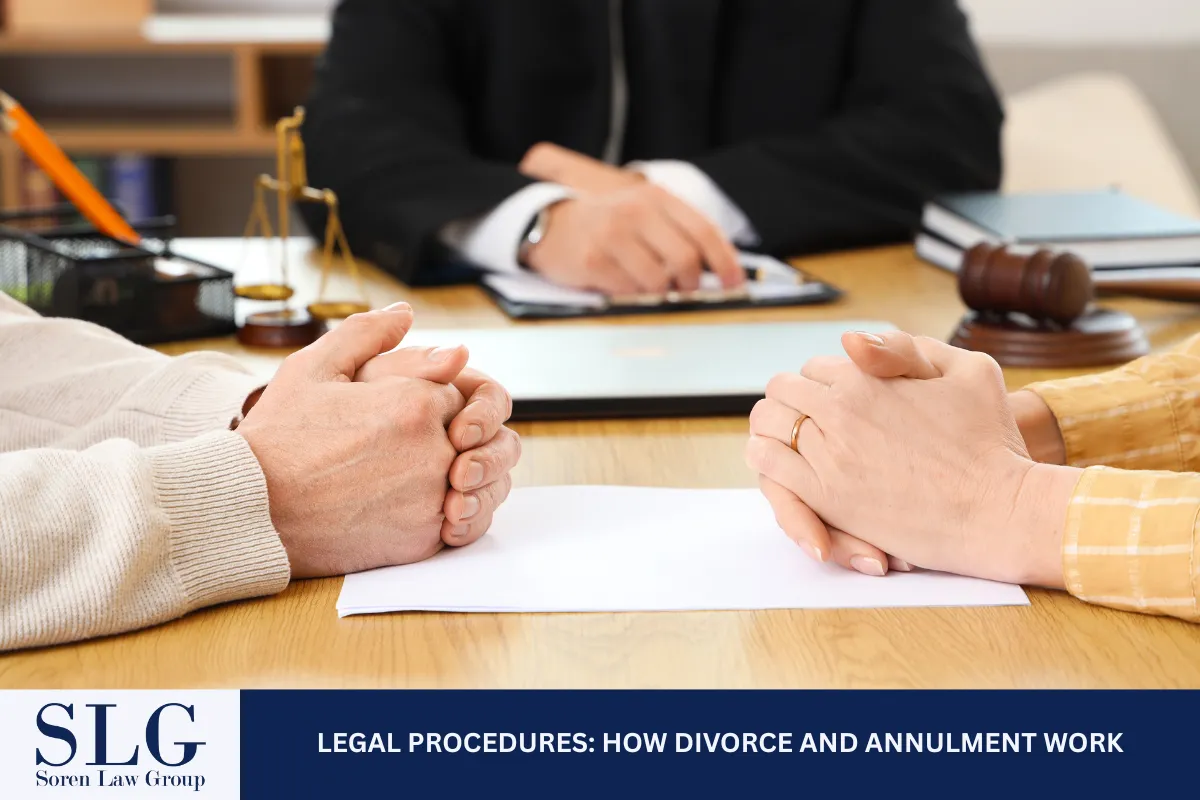
Both divorce and annulment are processed through the court system. Still, the procedures differ in terms of legal requirements and documentation.
Divorce Process
To begin a divorce in Staten Island, one spouse must file a Summons with Notice or a Summons and Complaint in the Supreme Court. The other spouse is then served with legal papers. If both parties agree on the terms, it is considered an uncontested divorce, which can be resolved more quickly and efficiently. If there is disagreement, the divorce becomes contested and may involve court hearings.
Financial information must be exchanged, and arrangements for custody, support, and property division must be finalized. A judge will review and approve a final agreement or decide unresolved issues at trial.
Annulment Process
Annulments also begin with filing legal paperwork in court. Still, the process involves proving that the marriage was invalid based on one of the specified legal grounds. Evidence such as medical records, written documents, or witness testimony may be required. The court will examine whether the conditions for annulment existed at the time of marriage. If proven, the judge declares the marriage void.
Because annulments rely on proving past events, they often take longer and require more effort than uncontested divorces.
Timeframe and Complexity of Each Process
Divorce generally follows a more predictable timeline, especially in no-fault cases. A typical uncontested divorce in Staten Island typically takes between three to six months, depending on how quickly the paperwork is filed and approved.
Contested divorces can stretch to a year or longer, especially when custody or property disputes are involved. Factors that delay the process include court backlog, disagreement between spouses, or incomplete documentation.
Annulments vary widely in duration. Because they require proof and sometimes hearings, they can take just as long or even longer than a contested divorce. The complexity of the annulment depends on the evidence required and the strength of the other spouse’s opposition to the claim.
Financial and Property Consequences

In divorce cases, New York follows the equitable distribution rule. This means that marital property—anything acquired during the marriage—is divided fairly, though not always equally. The court considers income, assets, debts, and future financial needs when dividing property.
Spousal support, or alimony, may be awarded based on the length of the marriage, income disparity, and the ability of one spouse to support themselves.
In annulment cases, property division is not always straightforward. Since the marriage is treated as if it never existed, courts may return property to the person who originally owned it. Shared property may still need to be divided if there was significant cohabitation or financial intermingling, but the legal basis differs from divorce.
Custody and Parenting Considerations
Whether through divorce or annulment, custody and support for children must be arranged through legal channels. Courts in Staten Island focus on the best interests of the child when deciding who gets legal and physical custody.
Child support is calculated based on income and expenses and is mandatory regardless of the marital status of the parents. Annulment does not impact the legal recognition of children. Children from annulled marriages are still considered legitimate under New York law, and both parents remain responsible for their care and support.
Choosing the Right Legal Option

Deciding between divorce and annulment depends on the circumstances of the marriage. Divorce is the most common option because it is more widely applicable and generally easier to prove. Annulment is limited to cases where something legally invalidated the marriage from the beginning.
A thorough legal review is often needed to determine eligibility for annulment. If none of the valid grounds for annulment apply, then divorce may be the only option available.
Discussing the matter with a qualified divorce attorney ensures that all legal rights are protected and that the process is conducted in accordance with state law.
Legal Support Matters in Family Law
Navigating divorce or annulment without legal help can lead to missed rights and long-term complications. Legal professionals familiar with Staten Island’s court system can help manage timelines, gather documentation, and present your case clearly.
Whether pursuing a divorce or annulment, working with an experienced family law professional can provide peace of mind and yield better results. The right legal team will explain your options in clear, simple terms and help you move forward with confidence.
Final Thoughts on Choosing Between Divorce and Annulment
Ending a marriage is never easy, but understanding your legal options helps you take the right steps forward. Divorce and annulment serve different legal purposes, and each has specific rules that apply based on your relationship, circumstances, and future goals.
By taking the time to understand how these legal processes work under New York law, individuals can make more informed decisions. Speaking with a trusted legal advisor makes the path ahead clearer and less stressful.
Staten Island Divorce Attorney – Soren Law Group

Looking for trusted legal help with a divorce or annulment in Staten Island? Soren Law Group provides clear, practical support when you need it most. Our divorce attorney team is experienced in handling the legal and personal challenges that come with family law cases. We guide you through every step—making sure your rights are protected, your voice is heard, and the process is easier to manage.
From filing for divorce or seeking an annulment to resolving custody issues or drafting prenuptial agreements, we take every case seriously and treat each client with respect. Whether your situation is straightforward or complex, our goal is to provide you with the support and legal solutions that best fit your needs. Contact us today at (718) 815-4500 to talk with an attorney who’s ready to help.
Frequently Asked Questions About Divorce and Annulment in Staten Island
1. Can I get an annulment instead of a divorce if my marriage didn’t last long?
Not necessarily. The length of a marriage does not determine whether you qualify for an annulment. In New York, annulments are only granted if specific legal grounds existed at the time of the marriage—regardless of how long it lasted. These include things like fraud, coercion, mental incapacity, or if one spouse was already married. Just because a marriage was short or a mistake doesn’t mean it qualifies for annulment. You’ll need to prove that something legally invalidated the marriage from the beginning. A marriage that didn’t work out, even after a few days, must usually go through the divorce process unless clear evidence supports one of the annulment grounds. Suppose you’re unsure whether your situation meets the criteria. In that case, it’s best to consult a qualified divorce attorney familiar with New York family law and local Staten Island courts. They can help review your case and provide guidance on the best course of action.
2. What’s the difference between a void and a voidable marriage in New York annulment law?
In New York, a void marriage is considered legally invalid from the start. It doesn’t require a court order to be recognized as such. An example would be bigamy—if one spouse is already legally married to someone else, the second marriage is automatically void. Another example is marrying a close blood relative, which is illegal in every case.
A voidable marriage, on the other hand, is considered valid unless one of the spouses asks the court to annul it. This includes cases involving fraud, duress, mental incapacity, or if one party was underage without proper consent. The key difference is that voidable marriages require proof in court and an official judgment to be annulled.
Even though void marriages are technically invalid from the beginning, it’s still smart to get a court declaration to avoid future legal confusion. Talking to an attorney can help you understand how your marriage would be classified.
3. Do I need to prove fault to get a divorce in Staten Island?
No, you don’t need to prove fault. New York is a no-fault divorce state, which means that either spouse can file for divorce by simply stating that the relationship has been irretrievably broken for at least six months. This ground doesn’t require you to show evidence of wrongdoing by your spouse. It’s the most common option for couples who agree that the marriage should end but don’t want to place blame.
However, New York also allows for fault-based divorce if one spouse wants to file based on issues like adultery, cruelty, abandonment, or imprisonment. These grounds can be more complicated because they require proof, such as witness statements, photos, or legal documents.
Choosing between no-fault and fault-based divorce depends on your goals. For example, some people believe fault grounds might influence custody or property decisions. However, courts typically prioritize fairness and the child’s best interests over blame.
4. How does the court divide property during a divorce in Staten Island?
New York follows a rule called equitable distribution, which means the court divides marital property fairly—but not necessarily 50/50. This includes assets and debts acquired during the marriage, such as a house, car, retirement accounts, or even credit card balances.
The court looks at several factors to decide what’s fair:
- The length of the marriage
- Each spouse’s income and earning potential
- Contributions made to the household (financial and non-financial)
- The needs of each party after the divorce
Separate property, such as gifts or inheritances received by one spouse before or during the marriage, typically remains with that person unless it is commingled with marital assets.
Judges in Staten Island consider both partners’ circumstances. For example, if one spouse stays home to raise the kids while the other works, that contribution is taken into account. A divorce attorney can help you prepare for negotiations or court decisions about what’s considered fair.
5. Will I need to go to court for a divorce or annulment in Staten Island?
It depends on whether your case is contested or uncontested. If both spouses agree on everything—property division, custody, and support—you may not need to appear in court. In that case, your attorney can submit the signed paperwork to the court, and a judge can issue a final judgment without a hearing.
However, if there are disagreements, the case becomes contested. That means you’ll need to attend court hearings, present evidence, and possibly go to trial. This applies to both divorces and annulments. Annulment cases often require court appearances because they involve proving one of the legal grounds for invalidating the marriage. Evidence may include witness testimony, medical records, or other documentation.
Even when a court is required, your attorney handles most of the legal arguments. Your role may be limited to giving testimony or answering questions. A reliable divorce attorney will guide you through each step so you’re fully prepared and supported.
Read more: How a Prenuptial Lawyer in Staten Island, New York Protects Your Rights Before Marriage

